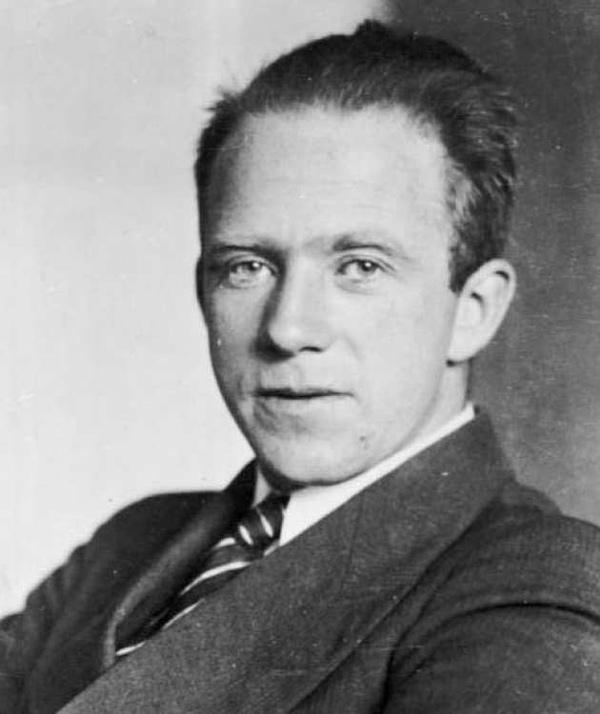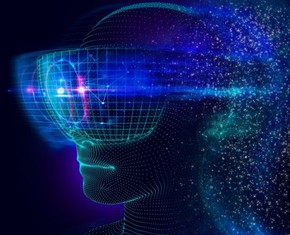The views expressed in our content reflect individual perspectives and do not represent the authoritative views of the Baha'i Faith.
In the Intelligence Squared debate about whether science refutes God, the debaters questioned even the order of the universe.
Physicist and atheist Lawrence Krauss, while making his points in the debate, began a discussion of the deterministic nature of the laws of physics by putting forth this interesting proposition:
I told you if the stars moved around today, I’d be really thinking there’s some intelligence in the universe. There’s just never been such an observation. So until there is, I’ll assume the reasonable logical thing, since there’s never been such an observation, there’s unlikely to be one. That’s all. As a scientist, I can say what’s likely and what’s unlikely. I don’t believe anything. (emphasis added)
I have a few questions. First, why would stars’ movement imply some intelligence in the universe? Krauss’ construct seems both arbitrary and non sequitur. It’s as if someone said, “If a red rose grew on my white gardenia bush, it would imply there’s love in the universe.” There is love in the universe (in some of its physical aspects, we call it gravity), but it has nothing to do with what grows on a gardenia bush or whether the stars move around on a nightly basis.
The companion question has to be: Why would a rational intelligence arbitrarily move things around? Wouldn’t the existence in the universe of order and meaning imply the existence of such a rational intelligence in the universe as a whole? If we had a chaotic universe, with absolutely no order, wouldn’t we reach the conclusion that no greater intelligence had made it?
Second, despite his denial of belief, Krauss has told us he does believe something: he believes that the universe is deterministic and that only our perceptions of it are not. His entire debate, in fact, rests on what he believes to be true based on his personal experience and perception of the universe as filtered through those same personal experiences and perceptions.
Third, his statement that if stars moved arbitrarily he’d believe in a God is a statement of the belief that God must be arbitrary, and that a lack of arbitrariness in the universe must mean there’s no God—or rather, that it causes Dr. Krauss to unreasonably believe that faulty premise.
Speaking to an audience of free thinkers and atheists in San Francisco, Abdu’l-Baha spoke at length about reason and its role in our perceptions of the universe:
The philosophers of the East … consider all philosophical deductions to be correct when weighed according to the standard of reason, and they state that the senses are the assistants and instruments of reason, and that although the investigation of realities may be conducted through the senses, the standard of knowing and judgment is reason itself….
Man is distinguished above the animals through his reason. The perceptions of man are of two kinds: tangible, or sensible, and reasonable, whereas the animal perceptions are limited to the senses, the tangible only. …Calculations of mathematical problems and determining the spherical form of the earth are through the reasonable perceptions. The center of gravity is a hypothesis of reason. Reason itself is not tangible, perceptible to the senses. Reason is an intellectual verity or reality. All qualities are ideal realities, not tangible realities. For instance, we say this man is a scholarly man. … When you see this scholarly man, your eye does not see his knowledge.… It is not a tangible verity. Science itself is an ideal verity. – Abdu’l-Baha, The Promulgation of Universal Peace. pp. 356-357.
All of the above leads me to ask: Can our belief in or trust of our ability to know ourselves and the universe blind us to mistaken perceptions? I think the answer is obvious: We can be blinded by anything if it comes to dominate our field of vision and keeps us from seeing other facets of existence. Only through a concerted application of reason to the things we observe—both tangible and intangible—can we arrive at a clearer perception of ourselves and our environment.

Werner Heisenberg
We know that our perceptions never reach a perfectly objective state. We live in the environment we are trying to study, and cannot see it from a different, detached perspective. We live in our own minds, which makes studying the mind problematic.
Heisenberg’s Uncertainty Principle posits the impossibility of observing multiple attributes of a thing at the same time, implying that observation alters the thing observed. We cannot measure the speed of something and its location simultaneously. When we try to measure our own thought, our own perceptions, our own intangible, insensible rational workings, we increase the impossibility of our task. We can map the path of a neuron, measure the speed of a synaptic interaction, or measure the volume of a human brain—we can even determine the nature of the electrical and chemical makeup of the physical evidences of the thought process—but we can do all that and still not understand the nature of thought itself.
Which is not to say we shouldn’t try to understand our own reality. Indeed, those who claim divine authority have told us that understanding ourselves and our universe is the purpose behind our very existence as rational beings. “He hath known God,” writes Baha’u’llah, “who hath known himself.”
You May Also Like
Comments

















Justice is knowing with our own eyes and not with the eyes of another. I don't see the earth move, and the stars move around me every night. Is not the madness of this century due in some part to us denying the evidence of our God given senses and adopting the false religion of scientism, ...fed to us by these latter day priests?
The first principle is that you must not fool yourself, and you are the easiest person to fool. Dr. Feynman was not particularly theist, but I'm sure that he would pinpoint to Dr. Krauss that his arguments are far off the field of science and the quest for truth.